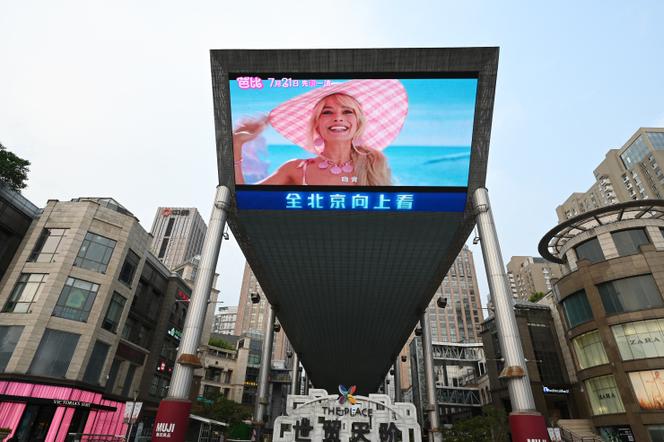


With 236 million yuan (approximately €30 million) in receipts, Barbie is already a modest commercial success in China. But the impact of Greta Gerwig's film, which has just passed the billion-dollar mark in worldwide sales, goes far beyond its monetary gains. Since its release at the end of July, the film has fueled an intense conversation about the place of women in Chinese society.
"It's a commercial film, entertaining and, at the same time, feminist. I think it's a first, and it's very convincing," judged Zhang Zhou, 29, who works in marketing in Shanghai. She's not the only one to think so: The enthusiastic reviews from the public convinced Chinese cinemas, which had reserved little space for it upon its release, to quadruple the number of screenings in the first two weeks, making it the fifth most-seen film of the moment, behind Mission: Impossible – Dead Reckoning Part 1 and other Chinese films, but ahead of Indiana Jones and the Dial of Destiny.
"I rushed to see it because I was afraid it would be censored! I'd heard that in South Korea, for example, men had been very offended. I knew that the same thing might happen in China," said Wang Yuqian, 27, a journalism graduate who lives in Zhengzhou, Henan, in east-central China. The satirical approach of the film, which takes place both in an imaginary Barbie world dominated by women and in California – where Barbie discovers the patriarchy – seems to have convinced Chinese censors that it was harmless.
The Hollywood production was also careful to embrace China's vision of geopolitics, drawing on an otherwise sparsely detailed map the "nine-dot line," which represents China's claim to most of the South China Sea. This choice led to the film's being banned in Vietnam, which claims part of these territories.
Yet Wang's concern was well-founded: in recent years, while feminist ideas have been gaining ground among the younger generation, the movement itself has made little headway. Hostile to all forms of social mobilization, the Chinese authorities have not hesitated to imprison Chinese activists who campaign for women's rights. While several cases of harassment or rape have emerged in the wake of the #MeToo movement, few have led to convictions, and discussions on the subject are regularly censored, leaving room only for anodyne comments.
"The #MeToo movement is practically invisible in China. But we can see that the question of the place of women is increasingly discussed on social media," said Wang, who admits to finding the film's subject matter "a little light." She prefers the sharper humor of comedian Yang Li, known for her acid retorts to toxic masculinity. In 2021, Yang suffered violent online attacks, and she is now much more discreet.
You have 49.61% of this article left to read. The rest is for subscribers only.
